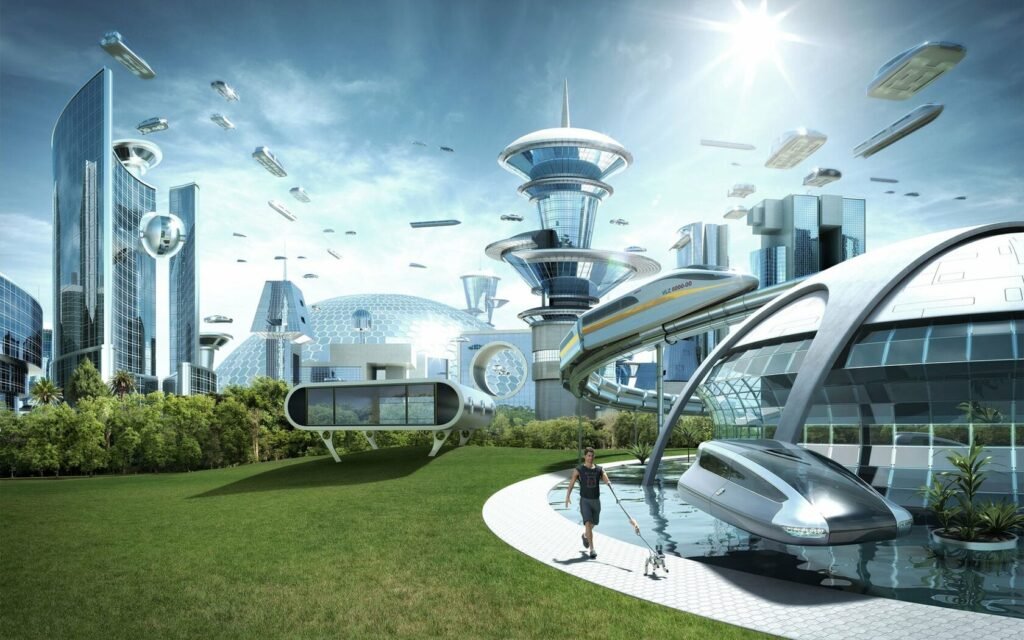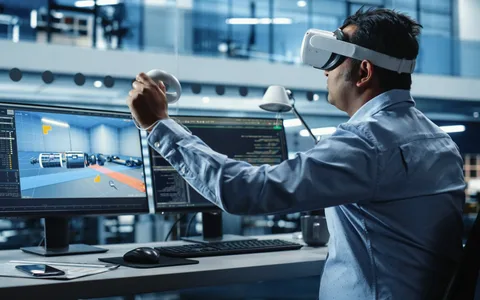As the world races into 2025, the convergence of innovation and automation is radically reshaping how we work, live, and do business. These 10 future technologies aren’t just upgrades — they are powerful disruptors that will transform global economies, redefine career paths, and alter the very structure of modern civilization. From artificial intelligence to quantum computing, here’s a breakdown of the technologies that will create new industries, eliminate traditional roles, and redefine human potential in the digital age.
Artificial Intelligence and Hyperautomation
By 2025, Artificial Intelligence (AI) won’t just support business processes — it will drive them. Hyperautomation, which combines AI, machine learning, and robotic process automation (RPA), will allow businesses to automate nearly every repetitive task. Customer service, logistics, finance, and HR will be managed with intelligent bots, freeing up human workers for creative and strategic roles. For job seekers, learning AI tools like TensorFlow or OpenAI APIs will become essential.
Quantum Computing and Problem-Solving at Scale
Quantum computing will move beyond theory and into real-world applications by 2025. With companies like IBM and Google leading the charge, quantum machines will solve highly complex problems in seconds—problems that traditional computers would take years to process. Industries such as finance (risk modeling), healthcare (drug development), and cybersecurity (quantum encryption) will benefit immensely. It will also create new job fields for quantum algorithm designers and quantum software engineers.
The Rise of Decentralized Internet (Web3)

Web3 technologies, including blockchain, distributed ledgers, and decentralized finance (DeFi), are set to rebuild the internet from the ground up. In 2025, individuals and businesses will own and control their data without relying on intermediaries like Google or Facebook. Smart contracts will power agreements, digital identities will become portable, and creators will monetize directly. This shift will demand new roles such as smart contract developers, token economists, and community managers in decentralized ecosystems.
Augmented Reality (AR) and the Spatial Web
Augmented Reality (AR) and the spatial web are expected to go mainstream in education, retail, and healthcare by 2025. Businesses will use AR to create immersive shopping, learning, and remote training experiences. Architects, doctors, and teachers will adopt spatial computing to visualize real-time data overlaid on the physical world. Job creation will lean heavily into AR design, UX for immersive tech, and spatial content development. The AR economy could be worth over $250 billion by 2025.
Robotics and the Future of Human-Machine Collaboration
Robotics is moving beyond factories into homes, hospitals, and warehouses. By 2025, we will witness a boom in collaborative robots (cobots) that work alongside humans safely. These robots will handle logistics, elderly care, surgeries, and even space exploration. As more companies adopt robotic assistants, job demand will rise for technicians, programmers, and human-robot interaction specialists. Businesses will see dramatic gains in productivity and cost savings.
Renewable Energy Tech and Smart Grids
Energy is being redefined by solar advancements, wind innovations, smart batteries, and AI-powered grids. In 2025, companies will shift from fossil fuels to renewable sources, driven by economic advantages and environmental mandates. Smart grids will distribute energy based on demand and efficiency, while green hydrogen becomes a major alternative fuel. Jobs will surge in solar panel installation, smart energy analytics, and sustainable urban design, making this sector a cornerstone of future employment and business investment.
Biotechnology and Genomics Revolution
Healthcare in 2025 will be shaped by genomics, synthetic biology, and AI-powered diagnostics. With breakthroughs in gene editing tools like CRISPR, doctors will target diseases at the genetic level, allowing for personalized, precision medicine. Businesses in pharmaceuticals, agriculture, and diagnostics will flourish. Meanwhile, job roles will grow in genetic counseling, biotech data science, and bioinformatics — blending biology and data like never before.
Internet of Things (IoT) and Smart Everything
The Internet of Things is transforming into the Internet of Everything. With over 75 billion connected devices expected by 2025, everything from fridges to traffic systems will be part of an intelligent network. Businesses will use IoT to monitor equipment in real time, prevent breakdowns, and track supply chains. Jobs in IoT architecture, edge computing, and cybersecurity for connected devices will explode. For consumers, homes will be fully automated, intuitive, and efficient.
6G and the Ultra-Connected World
Though 5G is still being rolled out, 6G development is already underway and is projected to become a reality by late 2025. With speeds 100 times faster than 5G and latency close to zero, 6G will enable things like holographic communication, brain-to-device interfaces, and fully autonomous vehicles. Businesses will gain real-time control of operations on a global scale. Careers in 6G infrastructure, spectrum management, and AR/VR content will emerge, linking physical and digital realities like never before.
Advanced Materials and Nanotechnology
The materials of the future are being developed at the nano level, where scientists design substances with atomic precision. Nanotechnology is revolutionizing industries by creating lighter, stronger, and more sustainable materials. In 2025, we’ll see widespread use of self-repairing coatings, nanomedicine, and biodegradable plastics. Businesses will benefit from cheaper manufacturing and extended product life cycles. Jobs in material science, nanotech engineering, and sustainability consulting will rise steeply.
Conclusion
By 2025, these ten technologies will not only transform jobs and businesses, but also reshape governments, education, urban planning, and even personal relationships. They will challenge traditional thinking and create an interconnected world where boundaries between man and machine, digital and physical, global and local, all begin to blur.
For individuals, the key to thriving in this future is adaptability and lifelong learning. Businesses must invest in digital transformation and sustainable innovation. Governments and societies will need to manage this shift with ethical frameworks and inclusive policies to avoid technological inequality.

Leave a Reply